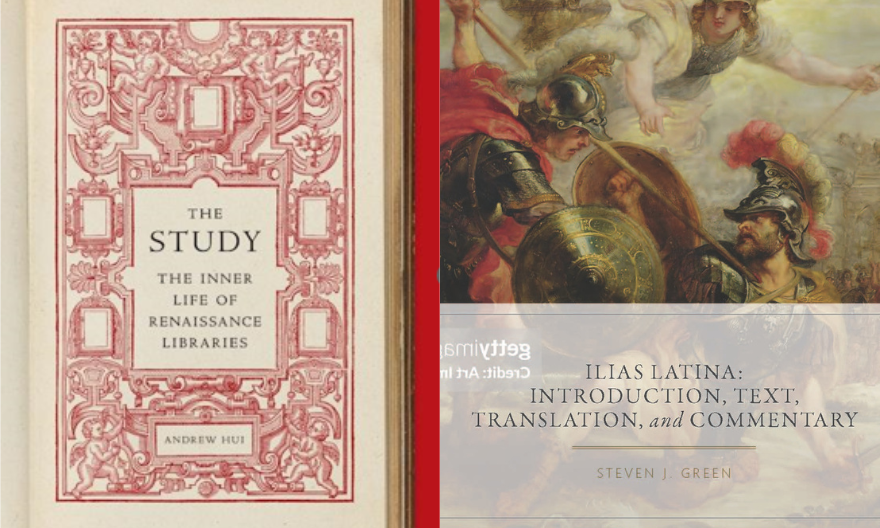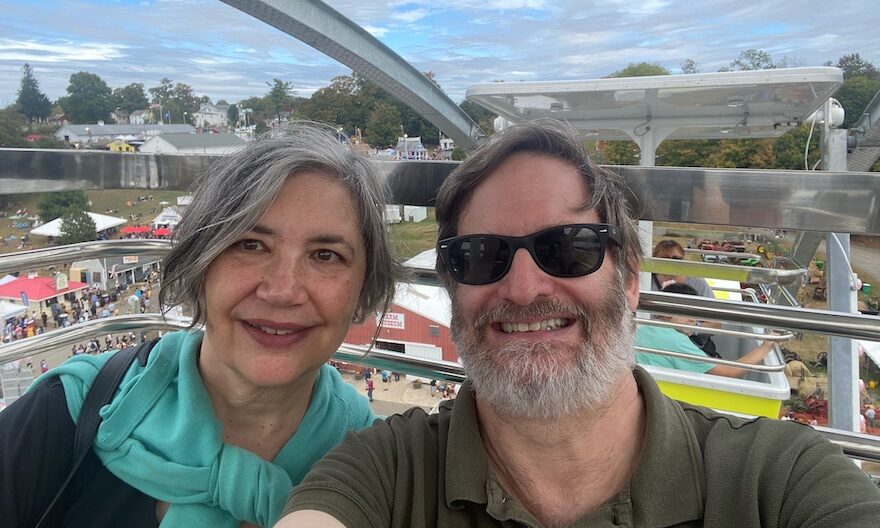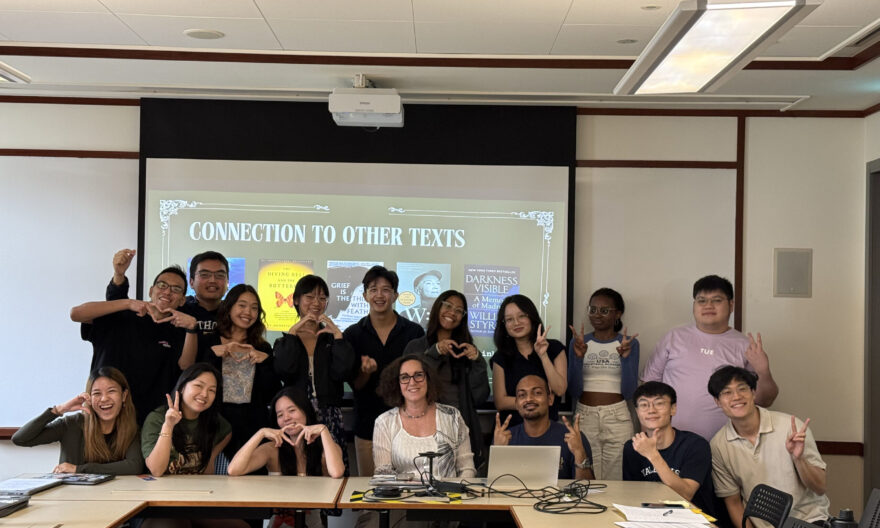Early Career Teaching Award recipients share their thoughts on engaging students and supporting learning
Teaching Award recipients discuss what the role of a teacher means to them
As part of the College’s commitment to quality undergraduate education, the annual Yale-NUS Teaching Awards recognise outstanding faculty members who have demonstrated excellence in teaching. Specifically, the two categories of the award––the Distinguished Teaching Award and the Early Career Teaching Award––celebrate faculty who show outstanding teaching within and beyond the classroom, inspire intellectual and creative development in students, and make contributions to curricular development at the College.
In the first part of our Teaching Award series, we spoke to the recipients of the Early Career Teaching Award, Assistant Professor of Science (Neuroscience) Ajay Mathuru and Assistant Professor of Science (Physics) Chelsea Sharon who shared more about their experience at the College and what they hope to achieve moving forward.
Teaching and being a teacher has a unique meaning to everyone. Especially in light of your Early Career Teaching Award, how is your role as a teacher meaningful to you?
Asst Prof Mathuru: I, like most members of the Yale-NUS College, am deeply committed to the idea of being in a community of learning. Teaching at the College is a source of joy, and brings meaning and purpose to my daily activities.
Asst Prof Sharon: I personally value trying to leave the world a better place than when I entered it. To me, teaching is one of the more unique contributions I can make to improve others’ lives. I can’t fix everything in the world––or even most things––but if I can help some students on their paths, then they can go on to achieve more than I can as an individual.
Throughout all the courses you have taught, has there been a certain teaching style you have adopted? What would you say characterises your teaching style?
Asst Prof Sharon: I tend to think of myself like a coach while the students in my classes are my team. My job is to give them the best practice possible so they can master the material and perform as well as possible on “game day”: projects, exams, and whatever they do in the future. Therefore, in the classroom, I make sure students have plenty of hands-on opportunities to practise applying the new ideas that they are learning, and ensure they are working together to support the learning of their classmates.
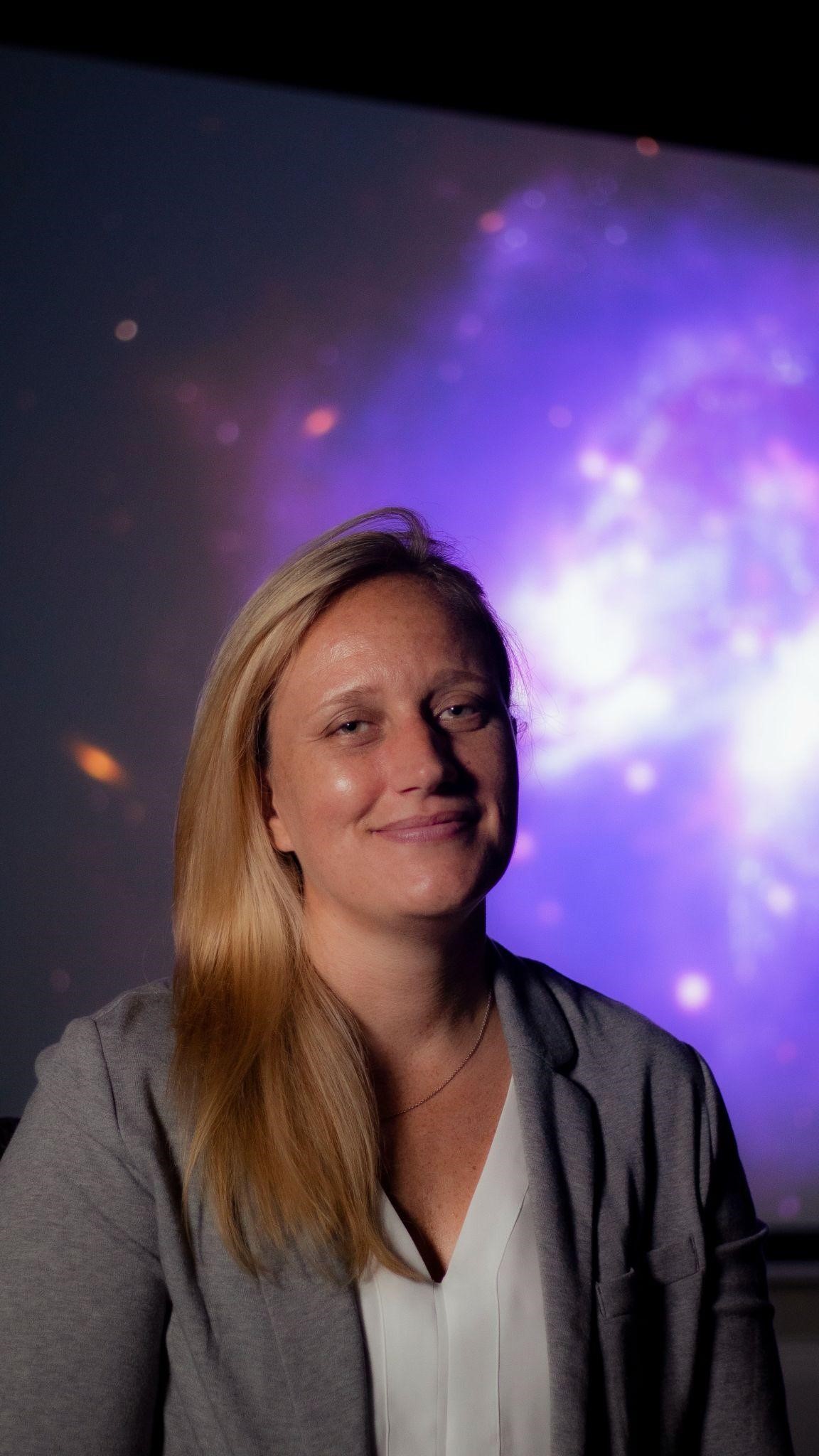 Image provided by Asst Prof Sharon.
Image provided by Asst Prof Sharon.
Asst Prof Mathuru: A common element in most of my courses is the use of examples from current events, news, and research that connects the students to the topic of discussion in class to the real world. Another element influenced by my training as a scientist is the use of a variety of resources that engage different sensory modalities. Reference material includes podcasts, videos, textbooks, as well as other non-traditional sources like blogs and science news websites. Because students all connect with learning material differently and have different needs, they will have an opportunity to take an interest in the material that engages them the most.
Prof Mathuru, I understand you are teaching a new course this semester called “Science of Life”. When undertaking such a task, how do you approach the challenge of teaching new material and courses?
Asst Prof Mathuru: Designing and teaching new courses takes a lot more time, but it is also quite exciting. You have the opportunity to take the best elements from previous courses, remove the less effective parts, and add something new. For instance, Science of Life––an introductory-level biology course––starts with students wrestling with a deep question: What is life? It then moves them to explore how life scientists have approached such a question, eventually migrating towards the processes associated with life using SARS-CoV-2, the virus at the centre of the pandemic, as the example.
When designing new courses, its relevance and purpose in the curriculum are the most important factors. Usually, my approach is to start with the outline of what the students will learn from taking such a course and how it fits in with other courses they are likely to take. Then, I bounce these ideas around with colleagues to refine further them before narrowing down on weekly material.
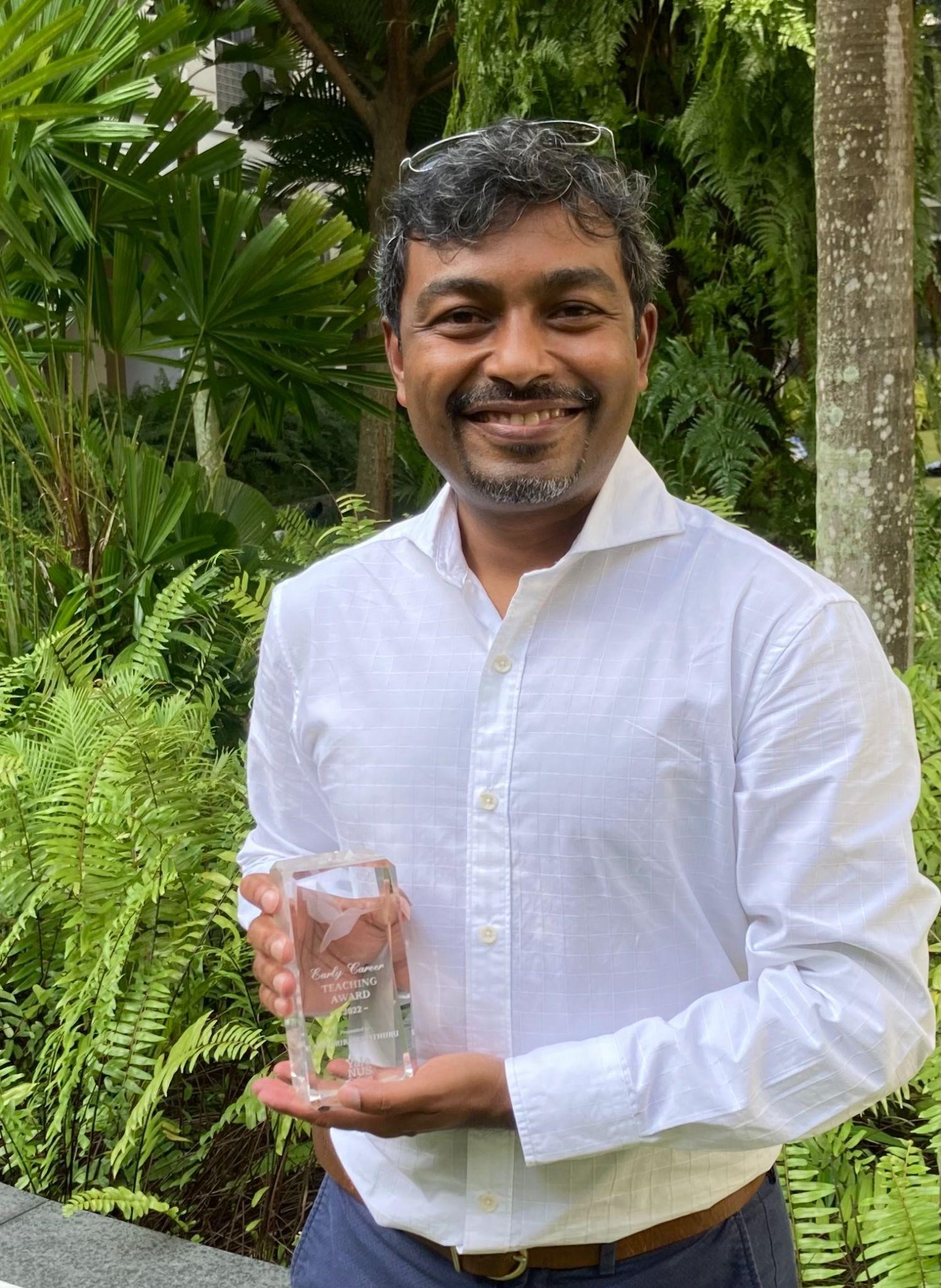 Image provided by Asst Prof Mathuru.
Image provided by Asst Prof Mathuru.
And finally, is there something you try to accomplish with new students to your class?
Asst Prof Sharon: In general, I want students to know that since science is complex, it is okay if they don’t find it intuitive right away. The scientific method was developed exactly because the rules that govern reality frequently don’t match intuition developed from our everyday lives. Much of scientific intuition relies on exposure and practice, so it’s entirely normal to struggle in science, but it is learnable!
Beyond normalising overcoming challenges, I want students to appreciate that struggling with ideas that initially don’t make sense is precisely how scientific progress is made, and why our understanding of the world is continuously improving. Hopefully, students will understand the very nonlinear process that science takes, and ultimately the power that process has for solving difficult problems and answering interesting questions.
Watch this space for the second part of Teaching Award series, where we speak to the recipients of the Distinguished Teaching Award, Senior Lecturer of Science (Life Sciences) Philip Johns and Senior Lecturer of Social Sciences (Urban Studies) Valentina Zuin.

